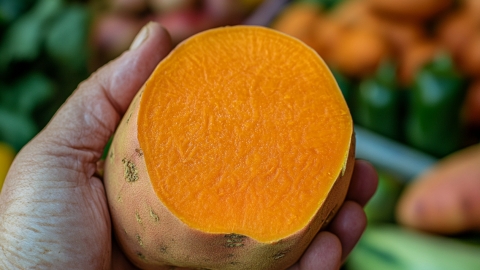Can patients with intestinal obstruction eat sweet potatoes?
Generally, patients with intestinal obstruction may cautiously try small amounts of sweet potato if they are in the remission phase and their bowel function is gradually recovering. However, during an acute episode or when the intestine is not fully通畅 (patent), sweet potato should be avoided. If in doubt, it is advisable to consult a healthcare professional in advance. Detailed explanations are as follows:

If a patient has entered the remission phase after treatment—meaning normal排气 (passing gas) and defecation have resumed, symptoms such as abdominal distension and pain have resolved, and intestinal motility is gradually returning to normal—small quantities of steamed sweet potato may be consumed. Sweet potatoes are rich in dietary fiber, which can promote intestinal motility. However, intake should be limited (e.g., a small piece), and the patient should monitor for any post-consumption symptoms such as bloating or abdominal pain to avoid increasing the burden on the intestines.
During an acute episode of intestinal obstruction, when a patient has ceased passing gas or stool and experiences severe abdominal pain, vomiting, or when the bowel remains partially or completely blocked, sweet potato must not be eaten. The dietary fiber in sweet potatoes can easily ferment in the intestine and produce gas, worsening abdominal bloating and potentially increasing intraluminal pressure, which may lead to serious complications such as intestinal perforation and hinder effective disease management.
Patients with intestinal obstruction should introduce new foods cautiously in small amounts and closely monitor their body's response. If discomfort occurs after eating, consumption should be stopped immediately and medical attention sought, to prevent improper diet from impairing recovery.









